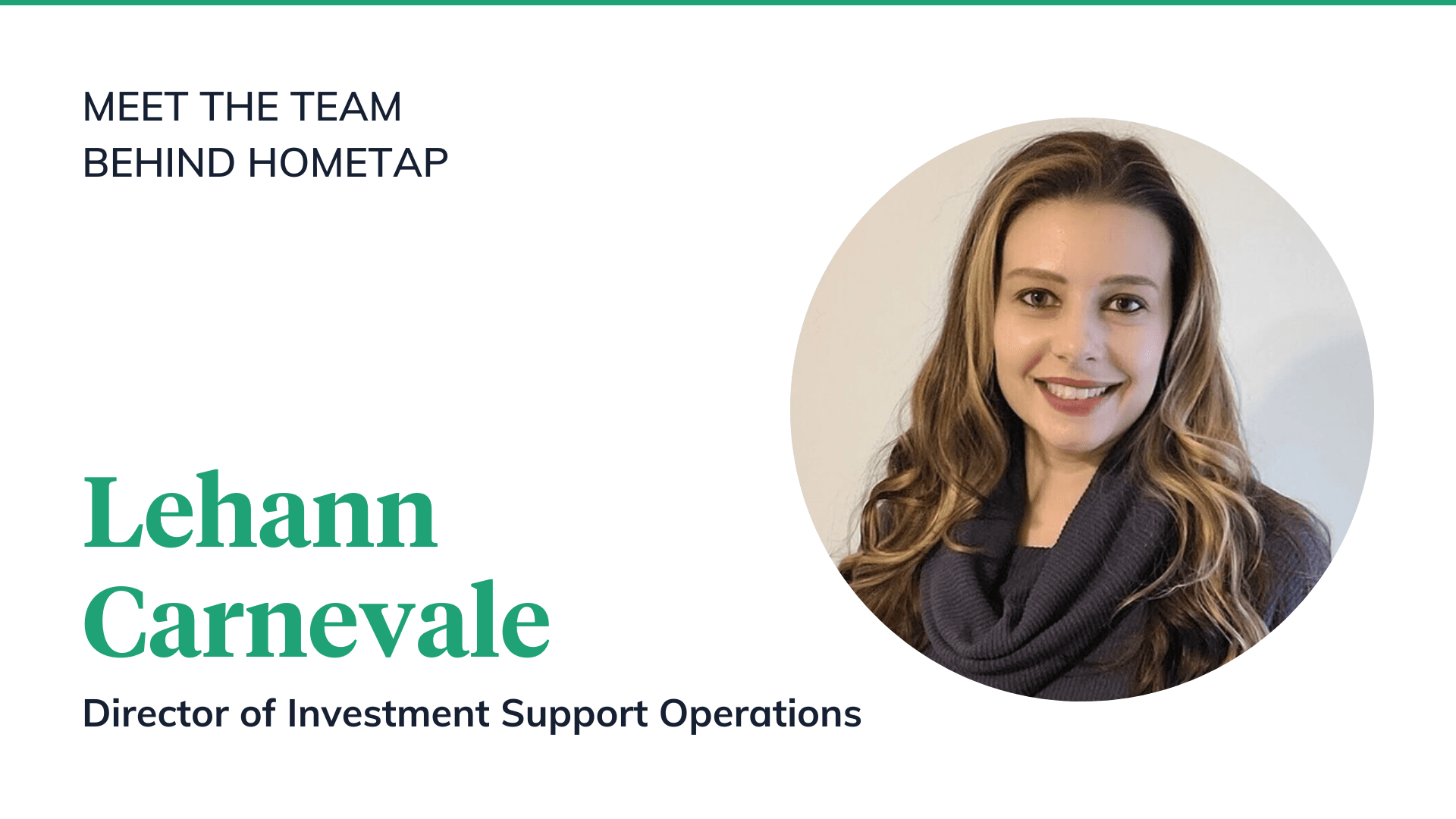10 Questions with Hometap's VP of Data

As Hometap’s Vice President of Data, Eric oversees our data science team, making business-critical decisions about when, how, and why we use the power of data to improve our products and services for homeowners.
CAREER HISTORY / BACKGROUND
Q: What’s the biggest challenge you face as Vice President of Data?
Hometap has to do all of the data and analytic tasks that any financial services company requires; we need to model, predict, and manage market risk, credit risk, operational risk. We need to predict portfolio performance and accurately evaluate the current and predicted value of the homes we invest in, and so on.
However — unlike almost any other company — we can’t rely on third-party solutions, because our home equity investment product is pretty unique! So we’ve had to build an entire suite of data science products from scratch, often using multiple sources of data and finding creative ways to leverage market and public data as we’ve grown our own data asset over the six years Hometap has been in business.
Creating a complete and highly effective set of predictive models and tools from scratch has been a challenge I don’t think I’ve ever seen in any other context and it’s been both challenging and hugely rewarding!
Q: What’s the most rewarding part of the role?
I’d say two things. Firstly, Hometap is truly a data-driven company, and my function is not “support” or “ancillary” — it’s central, and critically important to where we play and how we win. I’m expected to provide key, fact-based input to some of our most important decisions, and I’m an integral part of the leadership team.
For any data or data science professional, that’s where we want to be, and it’s because Hometap’s leadership understands and appreciates what we’re capable of that we’re pulled into those discussions.
The other part is the degree of creativity we get to engage in here. Data science is always creative to a certain degree, but at Hometap, we’re expected to be pushing the envelope and turning emerging technologies and techniques into tangible business outcomes. So we’ve been highly focused on things like ML-Ops and the new large language models (LLMs)/artificial intelligence (AI) tools on the market, finding novel ways to use them. Not just to write email drafts or help co-author documents (which is something I think everyone acknowledges they’re really good at), but to use them to automate manual processes like underwriting, document review, and customer service management.
Hometap has a culture of experimentation and a drive toward practical application, and that’s something, in the data space, that I’ve found highly rewarding and a bit exceptional here.
Q: How do you stay apprised of the most current news in the industry? What are you reading, listening to, or watching?
There’s a lot going on out there in this space. I think most of what I rely on is less in the publication area, and more people I know who are in the research and development or professional analysis space, who are tied into the places where people are focused on doing new things.
So I guess my number one source is my professional network — I’ve been doing this a long time across many different professional spaces. We also work closely with our vendors, both to evaluate their new products and to connect with other customers who are on the same journey we are.
Q: What’s the best advice that you’ve received during your career?
Build a network and community of the best people you can find, and stay in touch with them. We live in a world where people change jobs, geographies, and even careers frequently, and it’s easy to lose touch. But good people are worth the effort, and the relationships and friendships I’ve made have been invaluable professionally and even more important personally — it’s easy to get lonely when you move around a lot, but building and maintaining those connections are critical across all aspects of life.
AT HOMETAP
Q: What led you to Hometap and appealed to you about your initial role here and the company?
I’ve always been drawn to startups and to strategically important roles, and the data leadership role at Hometap was clearly both of those. What really got my attention, though, were two things: 1) During the initial discussions, I really connected with the company leadership and with the team I’d be joining. That’s hard to quantify, but it’s probably one of the most important factors in enjoying work; we spend a lot of time together and being with people you like is critical. The other aspect was how truly novel and interesting — and helpful — the HEI product is. I’ve never had the opportunity to be part of a truly novel financial services product and I think what Hometap is doing is, in some ways, legitimately historic. Hard to say “no” to that.
Q: What’s something you wish members of other teams within Hometap understood about being VP of Data or the work that you do specifically?
As I’ve said, Hometap is a company that sees data science and the underlying management of our information asset as being central to our success, so I’m blessed with peers and management that really understand an enormous amount about what we do.
So, I’ll answer this as a “something that I think people know, but maybe don’t always quite internalize.” We support the entire company, across all disciplines: everything outward-facing, inward-facing, all of our stakeholders and clients, every executive, and we need to be more than just “conversant” in their discipline to provide any real value. I’ve got a team that has to switch between business contexts and priorities multiple times a day, and if we don’t make that invisible and seamless to our stakeholders, we’re not quite succeeding.
Again, none of this would be a surprise to anyone we work with, but I think that this is the sort of thing where — if we do it adequately — it ought to be the last thing any of my coworkers ever have to think about.
Q: If you could trade jobs with anyone else at Hometap for a week, what position would it be?
Part of being in a role that supports everyone else is being aware of how good they are at their jobs and how unqualified I am to do what they do. If I had to trade jobs with someone else here, we’d all be in trouble.
Q: What’s one quality someone needs to be successful at Hometap?
One thing that I noticed is that people understand that Hometap is a startup, and not just a startup, but a company with a product that almost no one has seen before, so there is a great culture of support. The first thing I think someone needs to do to be successful here is to recognize that you need that support and not be hesitant to ask for help or ask questions when something seems new or weird, because that’s going to happen a lot.
The second thing is that we have a culture of ownership of our individual responsibilities and at the same time, we’re supportive of and collaborative with the people around us. We talk about this as being a “Good Owner” and a “Good Neighbor.” These are things that are very obvious and the sort of thing that every company would espouse and aspire to, but I think Hometap has done an especially good job of not just saying the right things, but actually putting them into practice. As we grow, it’s critically important that new people internalize and act on those values.
OFFICE CULTURE
Q: What qualities do you look for in a company’s office culture?
For me, it’s flexibility. Not every role is suitable for working from home, but when you’re dealing with scientists and engineers and deep technology experts, I want to be able to work from anywhere and find the best talent available, no matter where they live or what their life situation is. Hometap has the tools and the culture to enable this, but without a lot of the drawbacks of remote work that often leave people feeling isolated, left out, or unsupported.
I also look for an office culture where people believe in the mission at all levels. We believe in our product, our homeowners, our investors, and each other, and it’s an office and a group I look forward to seeing every day.
Q: What are the best and worst parts of working from home?
Most of what we do is look at code, documents, or tools screens. Even if we were in a traditional office, I think we’d be spending a lot of time staring at details on our screens as we meet and discuss things. For the kind of work Data does, working from home is highly efficient. I also think it’s easier to maintain a work-life balance since it cuts out dead-time for commuting.
The worst part, as I said before, is that it can feel disconnected — and that’s probably more true for people who are just starting out in their careers. Hometap has done a good job of building a vibrant remote culture that mitigates the potential worst pitfalls of remote work. We have multiple, quick meetings with the whole company and a tradition of transparency that lets everyone feel connected and see how their work is critical to the whole enterprise. The people in charge have a deep understanding of what leads to engagement and keeping people connected, and they’ve done a fantastic job of putting those ideas into practice.
Related Tags:
Employee spotlightMore in “Hometap happenings”

14 Questions with a Hometap Software Engineer

10 Questions with Hometap's Director of Investment Support Operations

